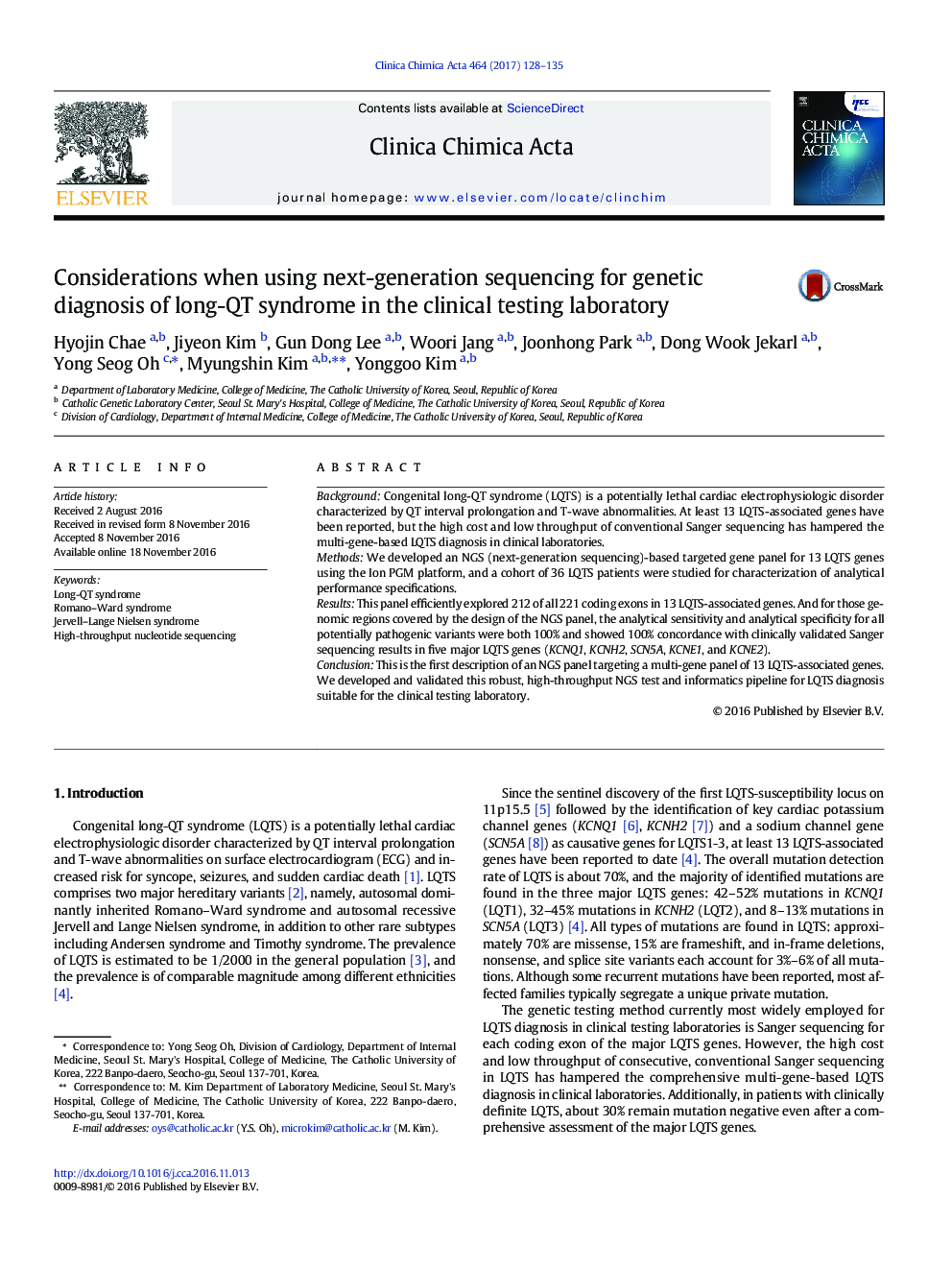| Article ID | Journal | Published Year | Pages | File Type |
|---|---|---|---|---|
| 5509801 | Clinica Chimica Acta | 2017 | 8 Pages |
â¢We developed an NGS-based targeted gene panel for 13 LQTS genes using the Ion PGM platform.â¢The NGS panel showed 100% concordance with Sanger sequencing in the genomic regions covered by the design of the panel.â¢This robust and high-throughput NGS panel and informatics pipeline is suitable for LQTS diagnosis in the clinical testing laboratory.
BackgroundCongenital long-QT syndrome (LQTS) is a potentially lethal cardiac electrophysiologic disorder characterized by QT interval prolongation and T-wave abnormalities. At least 13 LQTS-associated genes have been reported, but the high cost and low throughput of conventional Sanger sequencing has hampered the multi-gene-based LQTS diagnosis in clinical laboratories.MethodsWe developed an NGS (next-generation sequencing)-based targeted gene panel for 13 LQTS genes using the Ion PGM platform, and a cohort of 36 LQTS patients were studied for characterization of analytical performance specifications.ResultsThis panel efficiently explored 212 of all 221 coding exons in 13 LQTS-associated genes. And for those genomic regions covered by the design of the NGS panel, the analytical sensitivity and analytical specificity for all potentially pathogenic variants were both 100% and showed 100% concordance with clinically validated Sanger sequencing results in five major LQTS genes (KCNQ1, KCNH2, SCN5A, KCNE1, and KCNE2).ConclusionThis is the first description of an NGS panel targeting a multi-gene panel of 13 LQTS-associated genes. We developed and validated this robust, high-throughput NGS test and informatics pipeline for LQTS diagnosis suitable for the clinical testing laboratory.
